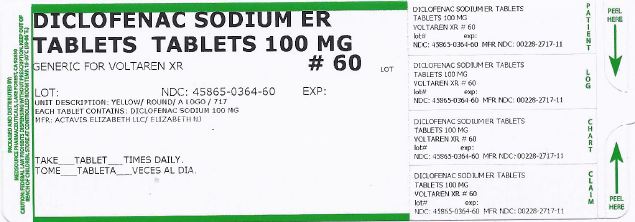
Diclofenac Sodium Extended-release | Diclofenac Sodium Tablet, Extended Release while Breastfeeding
What is Diclofenac Sodium Extended-release | Diclofenac Sodium Tablet, Extended Release ?
Can I use Diclofenac Sodium Extended-release | Diclofenac Sodium Tablet, Extended Release while breastfeeding?

Nursing Mothers It is not known whether this drug is excreted in human milk. Because many drugs are excreted in human milk and because of the potential for serious adverse reactions in nursing infants from diclofenac sodium extended-release, a decision should be made whether to discontinue nursing or to discontinue the drug, taking into account the importance of the drug to the mother.
Diclofenac Sodium Extended-release | Diclofenac Sodium Tablet, Extended Release Breastfeeding Analsys
Diclofenac sodium while Breastfeeding
SafeCAS Number: 15307-86-5
High plasma protein binding makes excretion into breast milk to be very low. Because the latter and a rapid elimination rate it is considered to be compatible with breastfeeding.
Diclofenac Sodium Extended-release | Diclofenac Sodium Tablet, Extended Release Breastfeeding Analsys - 2
Diclofenac sodium while Breastfeeding
CAS Number: 15307-86-5
Data on excretion of diclofenac into milk are poor, but the drug has a short half-life and little glucuronide metabolite formation. Most reviewers consider diclofenac to be acceptable during breastfeeding.[1][2][3][4] Other agents having more published information may be preferred, especially while nursing a newborn or preterm infant. Maternal use of diclofenac eye drops would not be expected to cause any adverse effects in breastfed infants. To substantially diminish the amount of drug that reaches the breastmilk after using eye drops, place pressure over the tear duct by the corner of the eye for 1 minute or more, then remove the excess solution with an absorbent tissue.
What should I do if I am breastfeeding mother and I am already exposed to Diclofenac Sodium Extended-release | Diclofenac Sodium Tablet, Extended Release?
Diclofenac Sodium Extended-release | Diclofenac Sodium Tablet, Extended Release is safe in breastfeeding and should not create any health problem for your baby but in case you feel any health issue associated with Diclofenac Sodium Extended-release | Diclofenac Sodium Tablet, Extended Release you should contact your doctor or health care provider. Be it pregnancy or lactation you shall keep your doctor informed.
My doctor has prescribed me Diclofenac Sodium Extended-release | Diclofenac Sodium Tablet, Extended Release, what should I do?
Usage of Diclofenac Sodium Extended-release | Diclofenac Sodium Tablet, Extended Release is safe for nursing mothers and baby, No worries.
If I am using Diclofenac Sodium Extended-release | Diclofenac Sodium Tablet, Extended Release, will my baby need extra monitoring?
No
Who can I talk to if I have questions about usage of Diclofenac Sodium Extended-release | Diclofenac Sodium Tablet, Extended Release in breastfeeding?
US
National Womens Health and Breastfeeding Helpline: 800-994-9662 (TDD 888-220-5446) 9 a.m. and 6 p.m. ET, Monday through Friday
UK
National Breastfeeding Helpline: 0300-100-0212 9.30am to 9.30pm, daily
Association of Breastfeeding Mothers: 0300-330-5453
La Leche League: 0345-120-2918
The Breastfeeding Network supporter line in Bengali and Sylheti: 0300-456-2421
National Childbirth Trust (NCT): 0300-330-0700
Australia
National Breastfeeding Helpline: 1800-686-268 24 hours a day, 7 days a week
Canada
Telehealth Ontario for breastfeeding: 1-866-797-0000 24 hours a day, 7 days a week
